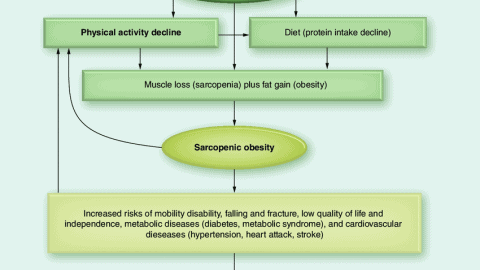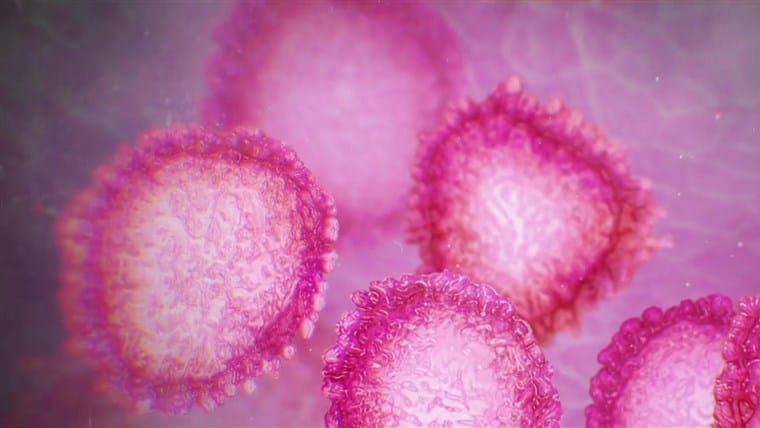A few days ago, Jan 29th 2014, a controversial study was published showing that men aged 65 years and older, had a two-fold increase in the risk of heart attack in the 90 days after filling an initial testosterone therapy (TT) prescription, regardless of cardiovascular disease history. Among younger men below 65 years of age with a history of heart disease, the study reported two to three-fold increased risk of MI in the 90 days following an initial TT prescription (and no excess risk was found in younger men without such a history).
This study has stirred up heated discussions and media headlines. Let’s dissect it and look under the hood…
Study methodology
The study analyzed over 55,000 patients in a health-care database, which did not include information on blood work nor diagnostic indications for treatment.[1]
Thus, it is lacking critical information on baseline hormone levels and potential risk factors which could have contributed to the heart attacks. The study also lacks data on what type of testosterone treatments that were used, and dosages.
In addition, it should be noted that this study was not a randomized controlled trial, which is the gold standard in medical research.
Comments
Testosterone replacement therapy (TRT) increases both estradiol and DHT (dihydrotestosterone). When men take testosterone, a significant amount of it can be converted into estradiol by aromatase in just a few months, especially in older men over 59 years of age.[2]
Excess estrogen promotes abnormal clot formation [3] and several studies have shown that even slightly elevated estradiol levels increases risk of CVD (cardiovascular disease), and cardiovascular/all-cause mortality. [4-6] For example, compared to having estradiol in the optimal range of 21.80 – 30.11 pg/mL, men with an estradiol level over 37.40 pg/mL were found in one study to have over a two-fold increase risk of dying during a 3 year follow-up.[5] Therefore, levels of all relevant hormones have to be monitored and taking into account before drawing conclusions. While acknowledging that estradiol elevations might contribute to cardiovascular events, the study authors did not point out that this could have been an important contributing factor to the rise in heart attacks.
Another issue that not many doctors are aware of is that the metabolic clearance of testosterone slows down with age.[7] This means that any given testosterone supplementation dose will cause a higher elevation in blood testosterone levels in older men over 59 years of age, compared to young men below 35 years. Thus, replacement doses have to be titrated accurately in older men to minimize the risk of adverse events during TRT.
The most common side-effect of TRT is elevation of hematocrit (aka polycythemia) [8], ie. an increase in the percentage of the volume of whole blood that is made up of red blood cells. Elevated hematocrit, which increases the blood’s viscosity (ie. makes the blood thicker), can itself give rise to heart attacks.[9] The risk of hematocrit elevation varies widely depending on mode of testosterone administration: 15% with gel and up to 44% with intramuscular injections.[10, 11] Thus, when evaluating safety of TRT, the different modes of testosterone delivery need to be analyzed separately. This was another important factor left out in this study.
What do other studies show?
The study’s ignorance of these issues completely discredits the conclusion that “evidence supports an association between testosterone therapy and risk of serious, adverse cardiovascular related events – including non-fatal myocardial infarction – in men.”
A plethora of randomized controlled trials contradicts this conclusion. Three meta-analyses of a total of 100 well conducted randomized controlled trials found no significant difference between the TRT and placebo groups for all cardiovascular events, nor for each type of event (all cause and CV death, fatal and non-fatal myocardial infarction, revascularization procedures, arrhythmia, cerebrovascular events).[8, 12, 13]
Why doesn’t this make it to the media headlines?
Bottom Line
Current available evidence generated from well designed randomized controlled trials show overall that TRT in men is not associated with an increase in cardiovascular adverse events.
Garbage in, garbage out!
References:
1. Finkle, W.D., et al., Increased Risk of Non-Fatal Myocardial Infarction Following Testosterone Therapy Prescription in Men. PLoS ONE 9(1): e85805. doi:10.1371/journal.pone.0085805, 2014.
2. Lakshman, K.M., et al., The effects of injected testosterone dose and age on the conversion of testosterone to estradiol and dihydrotestosterone in young and older men. J Clin Endocrinol Metab, 2010. 95(8): p. 3955-64.
3. Bracamonte, M.P. and V.M. Miller, Vascular effects of estrogens: arterial protection versus venous thrombotic risk. Trends Endocrinol Metab, 2001. 12(5): p. 204-9.
4. Corona, G., et al., Hypogonadism as a risk factor for cardiovascular mortality in men: a meta-analytic study. Eur J Endocrinol, 2011. 165(5): p. 687-701.
5. Jankowska, E.A., et al., Circulating estradiol and mortality in men with systolic chronic heart failure. JAMA, 2009. 301(18): p. 1892-901.
6. Abbott, R.D., et al., Serum estradiol and risk of stroke in elderly men. Neurology, 2007. 68(8): p. 563-8.
7. Coviello, A.D., et al., Differences in the apparent metabolic clearance rate of testosterone in young and older men with gonadotropin suppression receiving graded doses of testosterone. J Clin Endocrinol Metab, 2006. 91(11): p. 4669-75.
8. Calof, O.M., et al., Adverse events associated with testosterone replacement in middle-aged and older men: a meta-analysis of randomized, placebo-controlled trials. J Gerontol A Biol Sci Med Sci, 2005. 60(11): p. 1451-7.
9. Stergiopoulos, K., et al., Anabolic steroids, acute myocardial infarction and polycythemia: a case report and review of the literature. Vasc Health Risk Manag, 2008. 4(6): p. 1475-80.
10. Seftel, A., Testosterone replacement therapy for male hypogonadism: part III. Pharmacologic and clinical profiles, monitoring, safety issues, and potential future agents. Int J Impot Res, 2007. 19(1): p. 2-24.
11. Dobs, A.S., et al., Pharmacokinetics, efficacy, and safety of a permeation-enhanced testosterone transdermal system in comparison with bi-weekly injections of testosterone enanthate for the treatment of hypogonadal men. J Clin Endocrinol Metab, 1999. 84(10): p. 3469-78.
12. Fernandez-Balsells, M.M., et al., Clinical review 1: Adverse effects of testosterone therapy in adult men: a systematic review and meta-analysis. J Clin Endocrinol Metab, 2010. 95(6): p. 2560-75.
13. Haddad, R.M., et al., Testosterone and cardiovascular risk in men: a systematic review and meta-analysis of randomized placebo-controlled trials. Mayo Clin Proc, 2007. 82(1): p. 29-39.






Very helpful info Monica…
Thanks much for your continued hard work and in depth reporting…
My pleasure; I’m glad you find it helpful. 🙂
An excellent and timely article people can point to or share when someone informs them “a new study shows TRT increases the risk of heart attacks” when this study is essentially worthless for actually establishing any cause and effect for it. It’s bordering on junk science…
I’m going back to my endocrinologist in early Feb…hopefully to go back on TRT. When last on TRT(2010), I was told by a hemotologist(when in the hospital for an un-related issue), that bloodwork showed I had polycythemia. He recommended that I stop TRT. He also said he had a patient with the same situation who refused to stop TRT, so he just donated blood every 2-3 months. I went back to my endo after stopping TRT for a month and he said my hematocrit was now normal and we would just adjust the dose of Androgel. We lost our insurance, so this all became moot since I couldn’t afford the bloodwork.
What I’d like to do is this…go back on Androgel(I know why that other patient refused to stop…the difference in my life is “night & day” when on TRT from when I’m not!), donate blood every 2 months and monitor my hematocrit levels…how’s that sound?
That sounds like a good plan. You might also want to take fish oil; it counteracts some of the consequences of hematocrit elevations, for ex. fish oil reduces blood viscosity and thrombosis risk.
Monica, thanks. My Endo’s a cool guy, when I told him that I take fish oil, he suggested that I try to get as much as 10gr. a day…I’m usually around 8gr.
Aim for a minimum of 3 g EPA and 3 g DHA per day.
Every fish oil product contains a different concentration of EPA and DHA, so the total fish oil amount is irrelevant.
Badly designed study causes nothing but misinformation and confusion.
Indeed.
As with any study of this kind you can draw any conclusion you want.
Most Dr.s prescribing TT, don’t add an anti-aromatase to prevent the conversion of T to estradiol and DHT.
This is a case of medical malpractice being covered up by blaming the hormone, or drug.
Similar findings for Cox 2 inhibitors, led to them being blamed for heart attacks and strokes. In truth, the Dr.s were to blame for the events. They took people off large doses of NASIDS that act as a blood thinner, and gave them Cox 2 inhibitors that do little to thin the blood, with out prescribing a replacement blood thinner.
Yes, sad but true.
What is normal and ideal range for DHT in men ? Please, link ? What is better for health and libido (low or high DHT) ? How aromatase inhibitor stops conversion of T to DHT ? I’m asking this, because, my testosterone is low, but I have great libido. Is this maybe because of hight DHT (still did not check it, searching for lab that do it)? And, what if my DHT is ideal (more potent than test), am I good to have low test or not ? Monica, help 😀 My endo is not helping, looking for another one…….
I stumbled on your website when doing research related to this recent announcement, and thankful that it is yet another flawed attempt to cause fear and panic. I have been on TRT for about a year now and have seen a substantial increase in overall endurance, muscle tone, sense of well-being, and overall performance. What really caught my attention are the ads on TV now for lawsuits related to premature death and heart attacks from using TRT. Kind of scared me really, so I decided to stop my injections and try a product called Monster T made by the UniScience Group thinking the natural route was better than putting synthetic chemicals in my body. After reading your articles, it appears they are mostly a waste of $$$$ and have decided to start back on my injections. I am still trying to wrap my head around the long term safety of using synthetic testosterone, but from what I have researched it appears to be the best choice for me on a personal level. Everyone is different.
My story….About 12 months ago I decided to get my T-levels checked after hearing all sorts of ads on the radio. I am 48 years old, 5’10”, 190 lbs., and would consider myself to be in pretty good health. I work out 4 days a week (weights and basketball), eat fairly healthy, don’t smoke, and the only current medication I take is the Depo Testosterone as part of my TRT. My first blood test came back in the mid 200’s. The doc told me normal range is 500-1000, therefore was diagnosed with Low-T. The doc wanted to start me on AndroGel and come in for blood tests to ensure PSA levels didn’t become elevated. Everything came back within normal ranges. I used AndroGel for about 2 months and saw a slight increase in T-level, but not the results we were looking for. We decided to move to the injectible form of Depo Testosterone made by Pfizer and I do .5 cc every two weeks (I think I am saying that right) which appears to be a pretty small amount. The last blood test came back around 460 with normal PSA levels.
So overall, I am pleased with the results and have never felt anxious, aggressive, had acne to deal with, shrinking testicles, baldness, etc. Perhaps the fact I am using it in small doses is why this is so.
I haven’t read every single article or viewed all of your videos, but assume everything you are basing your research on are the synthetic form of testosterone, correct?
Thanks again…….Brandon
Well said, garbage in, garbage out. I’m a 49 year old male and my test was 377. Went on 175ml cream and three months later it is 680. Now, my weight is 162, body fat 9% and my diet is mostly vegetables and great whole foods protein (eggs, turkey, fish), with plenty of healthy fats (ghee, butter, olive oil) and the occasion carb and veggie meal. I haven’t dropped dead yet and my blood work is spotless. Who do they pick for these studies? Obese male looking to get laid more? Of course they drop dead.
Do any studies exist regarding a third route of testoterone administration, namely pellets inserted under the skin? This is generally in the waist above the buttocks. The pellets last from 4-6 months depending on fitness level of the individual. Highly fit men use it quicker.
When it comes to routes of testosterone administration; ultimately is it an issue of preference. There are pros and cons with each method (pellets, transdermal, injections and oral).
The important point is to achieve an on-treatment level in the upper reference range (to start with; individual health factors need to be taken into consideration). Different T formulations give different T levels, and different people may need different dosages to achieve a given final T level.
This is a great article which is also timely and relevant. Over the past couple of weeks there has been a lot of news, including law offices promoting class action lawsuits, over the increased risk of heart attack following T therapy. Monica certainly does her part to keep the world on the right track (an ever increasing difficult task). Thanks much!!!!!
Thank you Bruce! 🙂
I’m age 50, with Total T at 290, Free at 58, SHBG at 33. I’m experiencing increased visceral fat, lethargy, softer erections and disappointingly, my Type A, over-achiever personality is dwindling. My endocrinologist ran all the axis related hormone profiles (e.g. TSH, Prolactin and others) and they were normal.
Wants to start me on Clomid, noting I have yet to father children, it does not lead to infertility, and apparently jumpstarts your own natural testosterone production, with SOME users being able to taper off it and retain some natural T elevation afterwards.
In your opinion, Is Clomid equally efficacious, compared to testosterone? equally safe?
If I abandon the notion of having my own, biological kids, would T be a better option?
Thank you,
Jim
I failed to mention I have and continue to be, been a natural , non-competing bodybuilder for 30 years. SO the visceral fat is a bummer
Jim